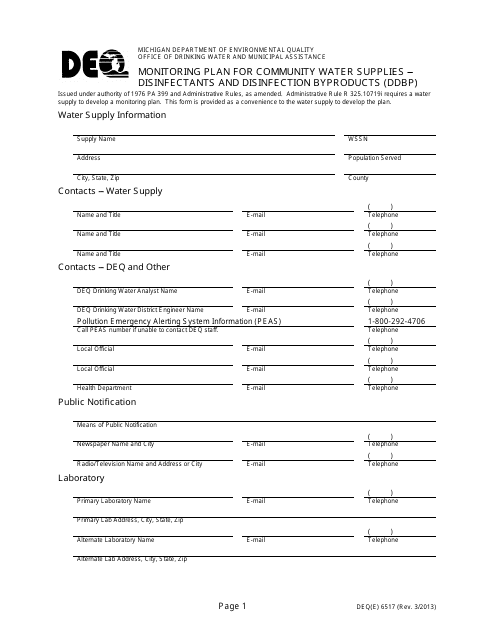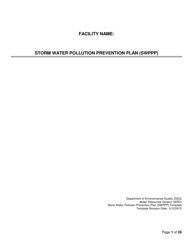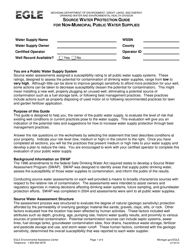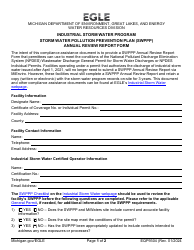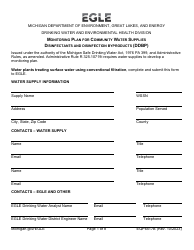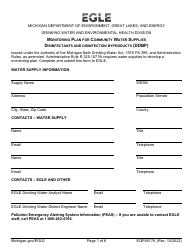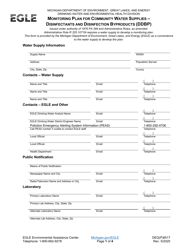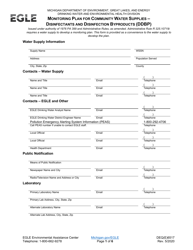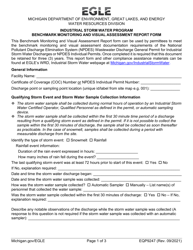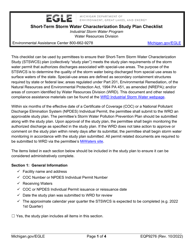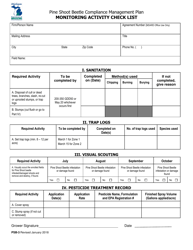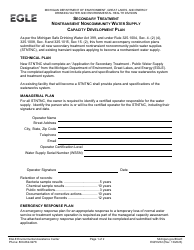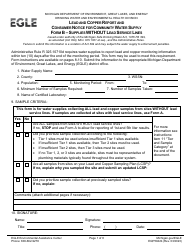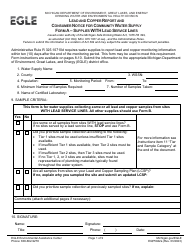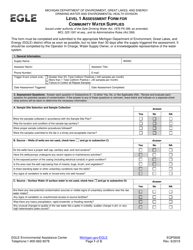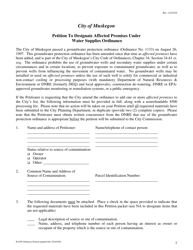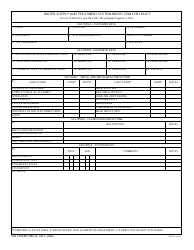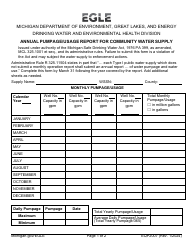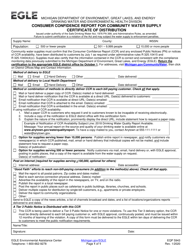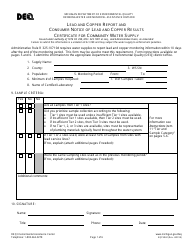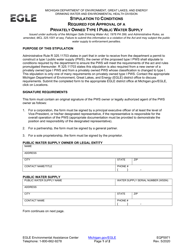Form DEQ6517 Monitoring Plan for Community Water Supplies - Disinfectants and Disinfection Byproducts (Ddbp) - Michigan
What Is Form DEQ6517?
This is a legal form that was released by the Michigan Department of Environment, Great Lakes, and Energy - a government authority operating within Michigan. As of today, no separate filing guidelines for the form are provided by the issuing department.
FAQ
Q: What is DEQ6517?
A: DEQ6517 is a monitoring plan for community water supplies in Michigan regarding disinfectants and disinfection byproducts (DDBP).
Q: What does the monitoring plan cover?
A: The monitoring plan covers the monitoring of disinfectants and disinfection byproducts in community water supplies.
Q: Why is monitoring important for disinfectants and disinfection byproducts?
A: Monitoring is important to ensure that drinking water meets state and federal regulations regarding disinfectants and disinfection byproducts.
Q: Who is responsible for implementing the monitoring plan?
A: Community water supplies in Michigan are responsible for implementing the DEQ6517 monitoring plan.
Q: What are disinfectants and disinfection byproducts?
A: Disinfectants are chemicals used to kill or inactivate harmful microorganisms in water, while disinfection byproducts are compounds that form when disinfectants react with organic matter in water.
Q: Why are disinfection byproducts a concern?
A: Disinfection byproducts can pose health risks, including an increased risk of cancer and other adverse health effects, if present in drinking water above regulatory limits.
Q: What are some examples of disinfection byproducts?
A: Examples of disinfection byproducts include trihalomethanes (THMs) and haloacetic acids (HAAs).
Q: How often should the monitoring of disinfectants and disinfection byproducts be conducted?
A: The monitoring should be conducted according to the frequency specified in the DEQ6517 monitoring plan.
Q: What happens if disinfectants and disinfection byproducts exceed regulatory limits?
A: If disinfectants and disinfection byproducts exceed regulatory limits, corrective actions must be taken to ensure compliance with the regulations.
Form Details:
- Released on March 1, 2013;
- The latest edition provided by the Michigan Department of Environment, Great Lakes, and Energy;
- Easy to use and ready to print;
- Quick to customize;
- Compatible with most PDF-viewing applications;
- Fill out the form in our online filing application.
Download a printable version of Form DEQ6517 by clicking the link below or browse more documents and templates provided by the Michigan Department of Environment, Great Lakes, and Energy.
